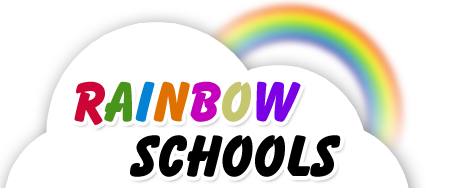Philosophy & Goals
Rainbow Schools are dedicated to the idea that learning is a natural accomplishment of living and should be a joyful process. Positive learning experiences enable a child to build a strong feeling of self worth as well as to cope more effectively with the world.
Rainbow School’s role is to focus the learning already taking place in a child’s life by guiding the child toward four goals: basic skill development, a deeper awareness of the world and his place in it, creative expression, and the ability to make effective choices.
Rainbow Schools individualizes instruction so that the child may develop at his own rate. Children are expected to experience the consequences of positive decisions. All of this is achieved in an atmosphere of positive support where each child’s strengths and abilities are emphasized and tasks are broken into steps which are developmentally appropriate.
